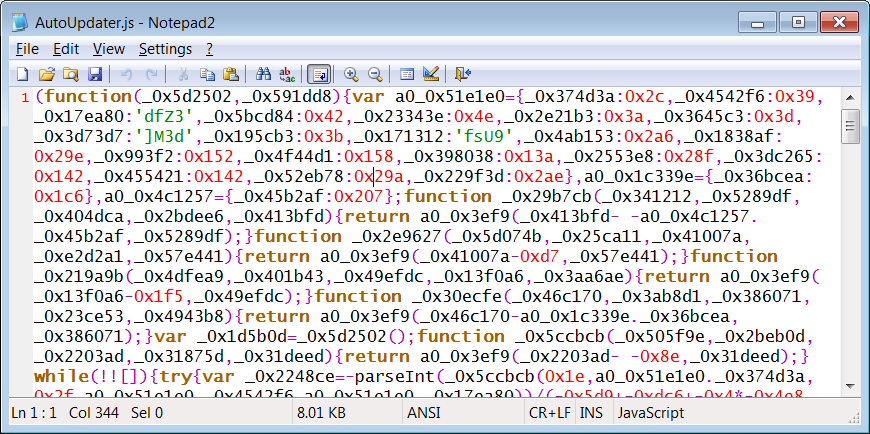Threat actors are using the compromised infrastructure of an undisclosed media company to deploy the SocGholish JavaScript malware framework (also known as FakeUpdates) on the websites of hundreds of newspapers across the U.S.
"The media company in question is a firm that provides both video content and advertising to major news outlets. [It] serves many different companies in different markets across the United States," Sherrod DeGrippo, VP of threat research and detection at Proofpoint, told BleepingComputer.
The threat actor behind this supply-chain attack (tracked by Proofpoint as TA569) has injected malicious code into a benign JavaScript file that gets loaded by the news outlets' websites.
This malicious JavaScript file is used to install SocGholish, which will infect those who visit the compromised websites with malware payloads camouflaged as fake browser updates delivered as ZIP archives (e.g., Chromе.Uрdatе.zip,
Chrome.Updater.zip, Firefoх.Uрdatе.zip, Operа.Updаte.zip, Oper.Updte.zip) via fake update alerts.
"Proofpoint Threat Research has observed intermittent injections on a media company that serves many major news outlets. This media company serves content via Javascript to its partners," Proofpoint's Threat Insight team revealed today in a Twitter thread.
"By modifying the codebase of this otherwise benign JS, it is now used to deploy SocGholish."

Malicious JavaScript file obfuscated contents (BleepingComputer)
In total, the malware has been installed on sites belonging to more than 250 U.S. news outlets, some of them being major news organizations, according to security researchers at enterprise security firm Proofpoint.
While the total number of impacted news organizations is currently unknown, Proofpoint says it knows of affected media organizations (including national news outlets) from New York, Boston, Chicago, Miami, Washington, D.C., and more.
"TA569 has previously leveraged media assets to distribute SocGholish, and this malware can lead to follow-on infections, including potential ransomware," DeGrippo also told BleepingComputer.
"The situation needs to be closely monitored, as Proofpoint has observed TA569 reinfect the same assets just days after remediation."
Link to ransomware attacks
Proofpoint has previously observed SocGholish campaigns using fake updates and website redirects to infect users, including, in some cases, ransomware payloads.
The Evil Corp cybercrime gang also used SocGholish in a very similar campaign to infect the employees of more than 30 major U.S. private firms via fake software update alerts delivered via dozens of compromised U.S. newspaper websites.
The infected computers were later used as a stepping point into the employers' enterprise networks in attacks attempting to deploy the gang's WastedLocker ransomware.
Luckily, Symantec revealed in a report that it blocked Evil Corp's attempts to encrypt the breached networks in attacks targeting multiple private companies, including 30 U.S. corporations, eight of them Fortune 500 companies.
SocGholish has also recently been used to backdoor networks infected with the Raspberry Robin malware in what Microsoft described as Evil Corp pre-ransomware behavior.
- aum and Karlston
-

 2
2




Recommended Comments
There are no comments to display.
Join the conversation
You can post now and register later. If you have an account, sign in now to post with your account.
Note: Your post will require moderator approval before it will be visible.